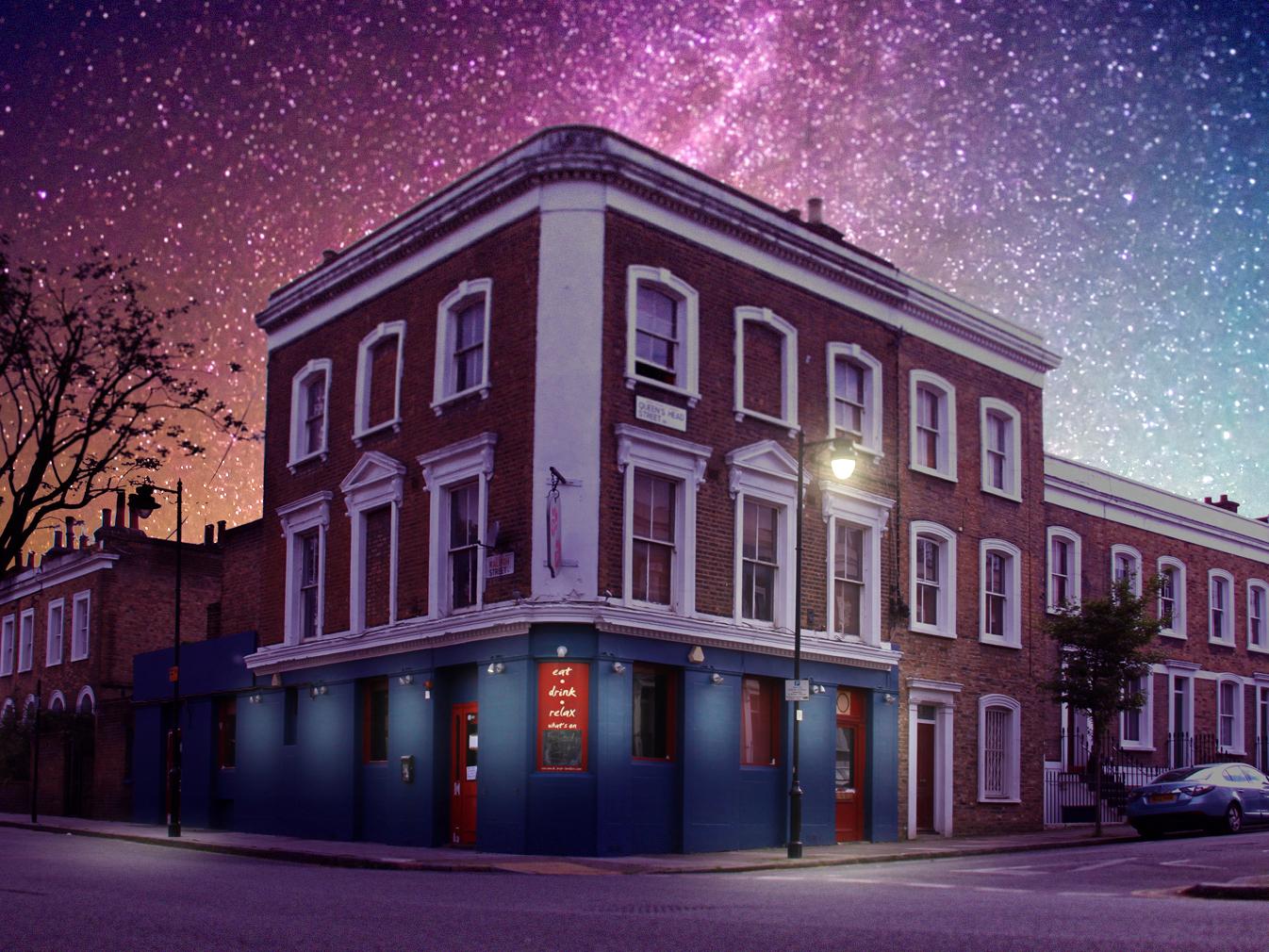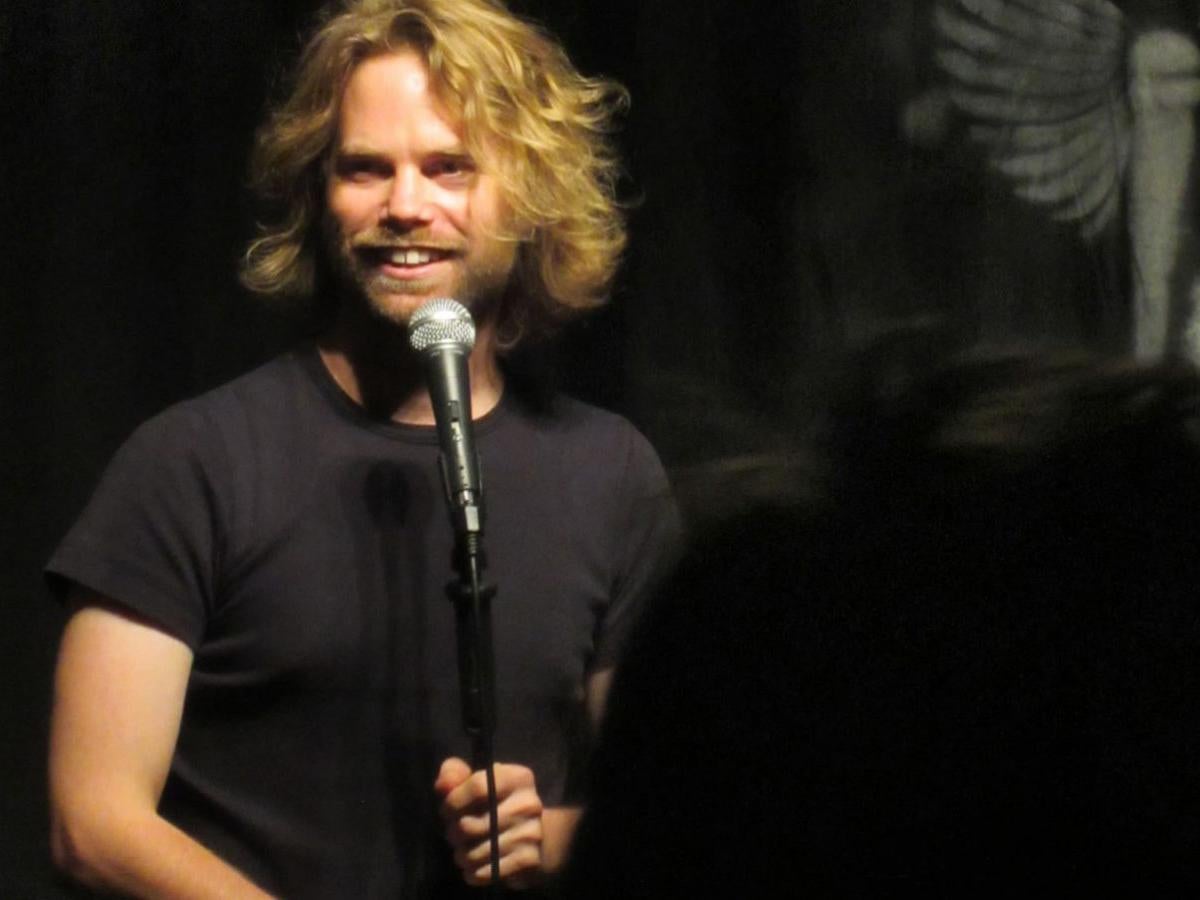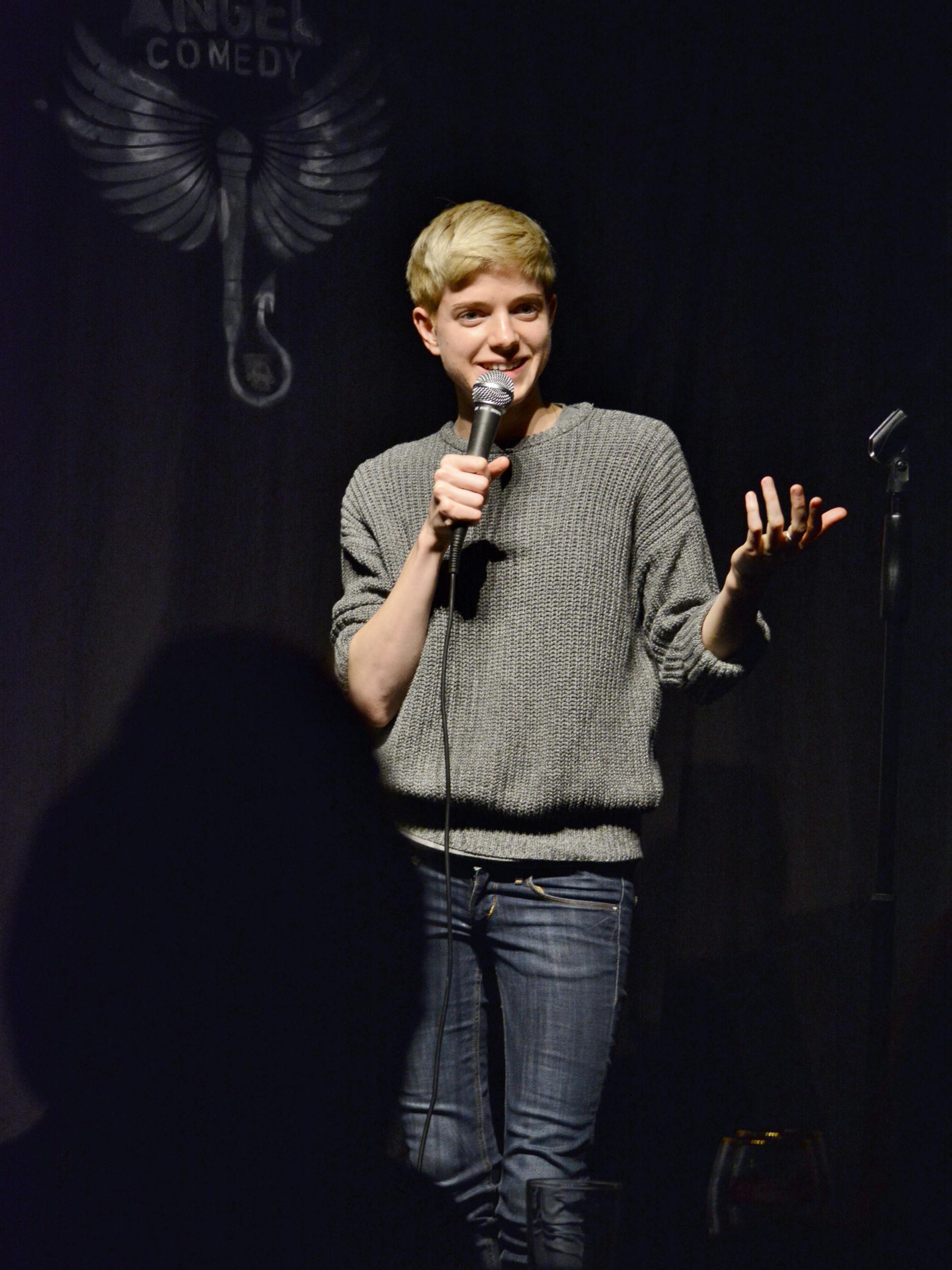The Independent's journalism is supported by our readers. When you purchase through links on our site, we may earn commission.
A comedian walks into a pub, buys it and turns it into a comedy club. It's no joke...
Comedians have been running comedy clubs for years – none clubbed together to buy a pub, until Barry Ferns and three business partners came along. The Bill Murray opened a year ago – while it's not laughing all the way to the bank, William Cook finds it is breaking even

It’s Friday night. In the back room of a backstreet bar, a crowd of tipsy millennials are enjoying a late-night stand-up set by one of America’s biggest sitcom stars.
Jeff Garlin, of Curb Your Enthusiasm fame, is playing to around a hundred people, and the atmosphere is electric. It’s intimate and unpredictable, everything stand-up comedy ought to be.
Driven by big business, live comedy has become terribly corporate, with TV stars charging Premier League prices for tickets to safe, conformist shows in plush theatres and anonymous stadia. There’s no spit and sawdust, precious little risk or danger. But now a new generation of comedians have found a brand new way of doing things.
At the Edinburgh Festival, where prices for mainstream shows have been rising remorselessly, up-and-coming comics have started letting audiences in for free. Instead, you pay what you want on the way out. It sounds like a daft idea but it seems to work.
And now this new sales strategy is spreading across the country. Luisa Omielan is one of a growing number of comics who’ve built a fan base by introducing that “pay as you leave” approach to gigs all over Britain, relying on social media and word of mouth to spread the word about her act.

Eventually, a comedy club caught on. The Angel Comedy Club night – in a room above a pub in in Islington, north London – kicked off in 2010 and spearheaded a policy of “pay what you can, when you leave”.
It became so successful that it ended up staging shows seven nights a week. A year ago, the comics who run this club took this concept to an entirely different level when they clubbed together and bought their own pub, around the corner. The Bill Murray is hidden down a quiet backstreet, with no passing trade, yet tonight the place is packed.
“This club is a symptom of people doing it for the passion,” explains one of the comics behind this venue, Barry Ferns, in the bar before the show. “This club isn’t about making shedloads of cash.”
This daring door policy is central to the counter-culture ethos of the club. The Bill Murray recalls the heady heyday of alternative comedy in the 1980s, when stand-up was an occupation for misfits rather than ambitious graduates – when no one had a career plan, and it felt like anyone in the audience could get up and have a go.
Barry has been doing stand-up ever since he was a teenager, and though he worked fairly regularly, with some success, he never made much money. It was the usual story. To build a profile as a comic he had to take a show to Edinburgh, and even though those shows went well, the overheads cleaned him out. Yet rather than admit defeat, he teamed up with three pals, bought the lease on backstreet pub The Mucky Pup and turned it into a comedy club.
Comedians have been running comedy clubs for years – it’s how alternative comedy got started – but those were just pop-up clubs in pub function rooms rented by the hour. None of them thought of actually buying a pub, until Barry and his business partners (Rachel Corino, Dec Munro and Sarah Pearce) came along. Barry put in £40,000 (he’d been left some money by his grandad). The others put in £20,000. Remarkably, they also raised £40,000 from Kickstarter. They only opened a year ago, and they’re already breaking even.
Barry and his friends decided to call their pub The Bill Murray, after the star of Groundhog Day and Ghostbusters, because they liked his quirky approach to comedy. They wrote to him to seek his blessing but he never replied, so the pub is officially named after William Murray, First Earl of Dysart (1600-1655), official whipping boy of the future Charles I, who was punished by proxy with a ferocious beating whenever Prince Charles misbehaved. This absurd ambiguity makes it an ideal name for this idiosyncratic club.

The Bill Murray isn’t just a comedy club – it’s also a kind of college. Barry’s colleague Sarah is setting up a charitable arm, providing comedy courses for local youngsters, for which she’s already received £2,000 from the John Thaw Foundation. This isn’t a stage school for TV wannabes. It’s about giving young people a chance to get up onstage and share their stories – to express themselves, acquire confidence, and find a voice.
Fundamentally, comedy isn’t all that different from any other industry. Alternative comedy started small, in a host of ad hoc venues a lot like The Bill Murray, but as the movement became more lucrative the money men moved in, and the big agencies squeezed out the smaller independent operators. Ferns and his friends have confounded this capitalist system by seizing the means of production. Karl Marx would have loved it.
But it’s their “pay as you leave” admission policy that’s really innovative. For most of their shows, you get in for free and on your way out the compere shakes a bucket. It’s a bold solution to a common problem: punters are still keen on stand-up, but the old business model is breaking down.
Stadium tours by TV stars are sucking the cash out of the circuit. Britain’s biggest chain of comedy clubs, Jongleurs, last this year. There was the same boom and bust in America in the 1990s. Club comedy had become too formulaic, too samey. Office parties and stags and hens weren’t coming to comedy clubs anymore.

These shrinking revenue streams aren’t confined to stand-up comedy. The music and newspaper industries are also struggling to make ends meet in our brave new virtual world, even though more people than ever are accessing their output via the internet. Seems your only hope is to give your stuff away, build a community, and pray some money somehow flows back to you (if you’re reading this article online, for free, that’s a case in point).
The success of The Bill Murray suggests this new approach may actually work. The acts get paid from audience donations, and though the fees they receive are fairly modest, the club attracts some of the best comics on the circuit: Simon Amstell, Richard Herring, Daniel Kitson... They relish the conviviality, the informality. The ambience isn’t adversarial – it’s supportive. Playing here isn’t just a springboard for getting an agent, or getting onto TV.
The décor of the club is a reflection of this attitude. The exterior is decorated with fantastic murals by a French graffiti artist called Zabou – portraits of classic comics: Charlie Chaplin, Richard Pryor, Robin Williams, Victoria Wood... The homely interior is fashionably distressed. There are old books on the bookshelves, donated by customers. It’s an eclectic mix, from Miranda Hart to Samuel Beckett, from Frankie Boyle to James Joyce. The walls are adorned with quotations from famous comedians. Most of them are gags, but the most fitting, from the late, great American comic, Bill Hicks, is deadly earnest: “We are the facilitators of our own creative evolution.”
It’s a business plan which could well catch on. Traditional pubs are closing, putting more premises like these within reach of people like Barry and Sarah. Punters are getting sick and tired of staring at computer screens all day and every evening. We want to be out there in the real world, interacting with real people. “If you’re in a room with a hundred other people, there’s a sense of reality,” says Barry. “Everyone’s alienated, in their own little pod. Now, more than ever, we need the live experience to bring people together.” Performers just need to find a different way of funding it, that’s all.
Back onstage, Jeff Garlin is storming it. He’s riffing off punters all around the room, something you could never do in a theatre, let alone a stadium. Time to go. As I run to catch the last Tube, I remember something Garlin said tonight. “In order to be a great comedian, you have to be low status.” He’s right. More than any other art form, comedy has to be low status. It’s about mishaps and balls-ups, and flashes of divine inspiration. It’s about oddballs and eccentrics. And it needs places like The Bill Murray to make it work.
William Cook is the author of ‘One Leg Too Few – The Adventures of Peter Cook & Dudley Moore’ (Preface), ‘Morecambe & Wise Untold’ (Harper Collins) and ‘The Comedy Store – The Club That Changed British Comedy’ (Little, Brown)
For more information on The Bill Murray or to sign up to its comedy course click here.
Join our commenting forum
Join thought-provoking conversations, follow other Independent readers and see their replies
Comments